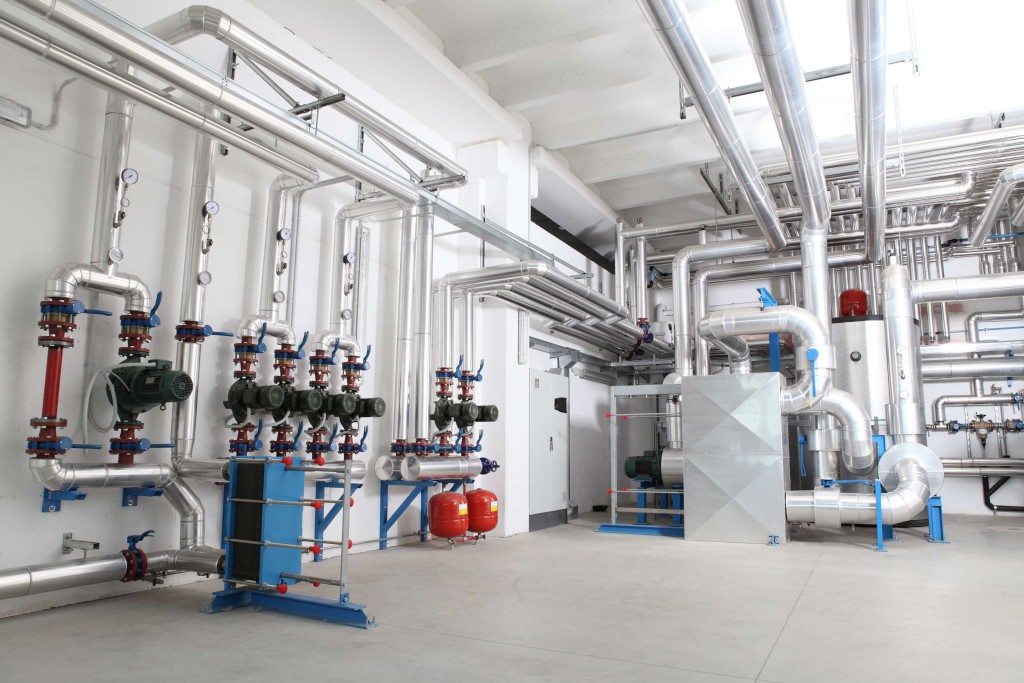Creating certainty and mitigating risk

Graham Watt, Commissioning Operations Manager responsible for Validation at Banyards, highlights the role of building services validation in the built environment.
Today’s ever changing world is marked by evolving safety standards, increasing tenant
demands, intense budget scrutiny, heightened focus on carbon neutrality and energy performance ratings. This is why building services validation has become more important than ever and is especially important when making design decisions around the future of a building’s mechanical and electrical (M&E) systems.
Accurate building services validation reports provide clients with confidence in their building’s assets including compliance, capacity, efficiency and safety. These reports highlight potential risks and opportunities, allowing clients to make informed decisions guaranteeing confidence in their budget and the building’s performance.
The consequences of ineffective validation
Without effective validation, building owners and tenants face significant risks.
• Plant and equipment failure – plant and equipment may fail or operate inefficiently leading to replacements, poor comfort conditions and even life safety risks. For instance, in a multi-level office block, tenants fitting out numerous floors need assurance that the HVAC, electrical, BMS and life safety systems are compliant, in good condition and will be 100% operational for the term of the tenancy.
• Systems failure – If heating, chilled water, fresh air and extract volume flow rates are incorrect, the building’s systems won’t function properly, compromising tenant comfort and potentially leading to legal disputes over lease agreements.
• Safety issues – If electrical systems are not properly validated and tested there could be compliance, capacity and even safety issues that may be detrimental to the occupants leading to potential insurance issues.
Building services validation generates cost savings
All clients are looking for value for money. Intrusive validation surveys can lead to significant cost savings for tenants and landlords. A full and detailed building services report will help a landlord identify whether upgrading their building is required to make it compliant, energy efficient and ready for market.
From a tenant’s perspective in a multi-level office block where a tenant occupies three floors, the Agreement for Lease (AFL) may specify heating, cooling and lighting loads. Pre-testing and validating these loads can help prevent future disputes and ensure the tenant receives the agreed upon services. Additionally, understanding the condition and life expectancy of equipment informs maintenance decisions and prevents costly breakdowns.
A tenant fit-out will depend on the design figures agreed with the landlord and these need to actually be verified on-site including air and water volume flowrates. Whether the tenant is looking after their own plant or not can also be a factor. If equipment breaks down, who picks up the cost and could this be pre-determined by the validation report?
The benefits of validation during refurbishment
Building services validation plays a critical role during building refurbishments, especially when considering the impact on Energy Performance Certificates (EPCs) and plant replacements. Tenants are increasing seeking energy efficient buildings which
can lead to a continuous cycle of upgrades. Validation ensures that refurbishments meet energy efficiency standards, thus reducing energy bills and carbon footprints. This is particularly important considering the Minimum Energy Efficiency Standards (MEES) legislation, which mandates phased compliance by 2027 and 2030.

Challenges in the evolving world of building services
The building consultancy industry faces several challenges in terms of legislation, compliance and data accuracy. Building services engineers and commissioning verification engineers need to be fully qualified and abreast of the latest standards, codes and guidance.
Precise data collection and analysis is crucial for reliable validation reports. Potential solutions include utilising advanced technology for data monitoring and capture. Overcoming these challenges is essential when providing clients with accurate insights into their building’s performance and compliance.
Insights into the future of building services validation and verification
The future of validation in the UK building consultancy sector is promising, driven by evolving regulatory frameworks, compliance, technological advancements and changing market dynamics. As buildings modernise and adapt to post-Covid demands, the need for validation services increases.
Landlords are focused on making their buildings more energy efficient and suitable for modern work patterns. Validation and verification ensure capital plant replacements and upgrades meet these new requirements, providing reassurance about performance as well as compliance.
Buildings and their landlords are being forced to address and adapt to the increasing demand for flexible working patterns, more meeting areas, employee gyms, bike storage and other facilities used to attract new employees and those returning to work in the office. Tenants will engage a validation report to de-risk the move from one building to another when seeking these facilities.
Sometimes in a multiple floor building with various tenants, we will validate a building before a bespoke fit-out project and again after it is completed to check the landlord’s building systems have not been affected by the work. This work is essentially checking the agreements for lease have been complied with.
We frequently find ourselves validating before and after capital plant replacements. A typical example might be that we undertake a validation exercise on the reliability and capacity of a chiller and as a result a new chiller may be installed. We then return to ensure it is fully commissioned and delivering the correct volume flowrate, temperatures and performance.
Reducing energy bills and the carbon footprint
Mastering Energy Performance Certificates (EPC) and ensuring energy efficiency in buildings are crucial starting points for effective validation. Most clients prefer to upgrade their buildings to meet energy standards rather than move to new premises depending on their business model, length of lease and value of the works. This trend has gained urgency with the introduction of the MEES legislation.
To navigate these changes, clients need a comprehensive understanding of their buildings, including potential risks and the costs associated with future improvements. Our validation services encompass all essential aspects, such as assessing the condition and life expectancy of the M&E plant and systems, identifying performance-affecting defects and conducting load monitoring to understand energy usage. This holistic approach ensures that buildings not only meet regulatory standards but also operate efficiently, reducing energy bills and the carbon footprint.
The linchpin of building management
Building services validation has become the linchpin in fostering confidence, sustainability and resilience in building management. Banyards delivers bespoke solutions tailored to client needs and ensuring buildings meet the highest standards. Whether it’s safeguarding the interests of landlords and tenants, reducing energy bills, or ensuring compliance with new regulations, validation is essential in today’s complex building environment.







